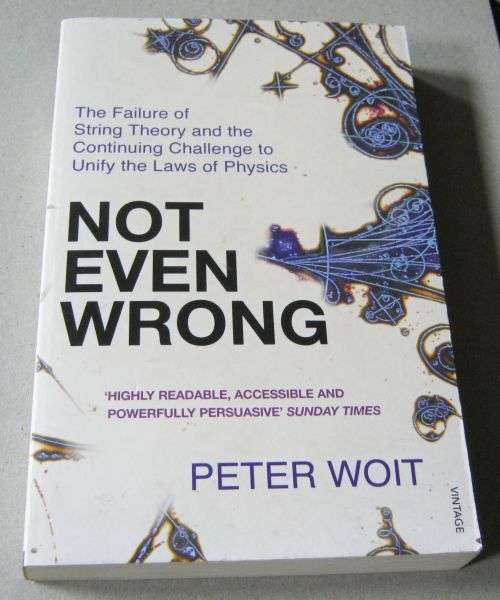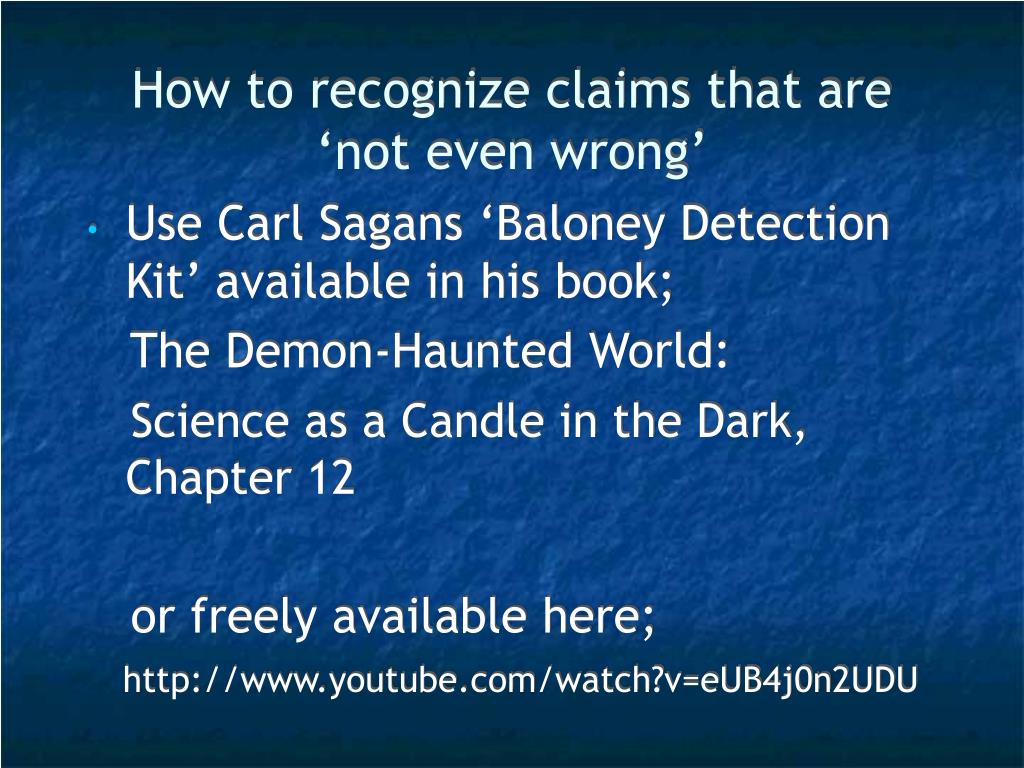

I think all this superstring stuff is crazy and it is in the wrong direction. Not Even Wrong provides readers with another side of the story. Book review: Not Even Wrong by Peter Woit. A while back Tushna Commissariat of Physics World came to talk with me at Columbia, partly to discuss the topic of Not Even Wrong, ten years later, and that has now been turned into a podcast available as Still Not. One book, Not Even Wrong: The Failure of String.

To date, only the arguments of the theory's advocates have received much publicity. To summarize, Id say Peter Woits book Not even Wrong is not an entertaining and easy to read popular science book. Two new books have been released recently that discuss problems with String Theory in the field of physics. The absence of experimental evidence is at the core of this controversial situation which means that it is impossible to prove that superstring theory is either right or wrong.

However, after twenty years, superstring theory has failed to advance beyond the Standard Model. Despite its successes, the Standard Model does not answer all the key questions and physicists continuing search for answers led to the development of superstring theory. The book begins with an historical survey of the experimental and theoretical developments that led to the creation of the phenomenally successful 'Standard Model' of particle physics around 1975. Not Even Wrong is a fascinating exploration of our attempts to come to grips with perhaps the most intellectually demanding puzzle of all: how does the universe work at its most fundamnetal level? One meaning refers to a theory that 'is so incomplete and ill-defined that it cant be used to make firm predictions whose failure would show it to be wrong.' Is this the state of String Theory today I like to say, first of all, that this is a difficult book to read for the layperson. "Not Even Wrong" puts the reader in a position to follow this increasingly controversial story as it continues to develop in the years to come.'Peter Woit's book Not even Wrong is an authoritative and well reasoned account of string theory's extremely fashionable status among today's theoretical physicists.I regard it as an important book' - Professor Sir Roger Penrose, author of The Road to Reality. The title of this book, 'Not Even Wrong,' is interesting. The author explains what physicist's hopes have been, why they haven't worked out, and what may be more promising directions for investigation. In recent years, string theorists have found that the theory seems to lead to an unimaginably large number of possibilities and may be inherently unable to make predictions. Lacking guidance from new experimental results, physicists have followed the principle that one should be looking for more 'beautiful' theories, and here, Peter Woit considers what the role of beauty may be in mathematics and physics. What the remaining questions are is explained in detail, together with the history of attempts to answer them, including the spectacular new mathematics that has arisen from these efforts. If so, there is a case to be made that even genuinely consensual professor-student relationships, while not instances of sexual harassment, can constitute sexual discrimination, outlawed by Title. Despite its successes, the Standard Model does not answer all questions that one would expect it to address, and for the last thirty years physicists have been trying to come up with a better theory. The book begins with an historical survey of the experimental and theoretical developments that led to the creation of the phenomenally successful so-called 'Standard Model' of particle physics around 1975. Not Even Wrong tells a fascinating and complex story about human beings and their attempts to come to grips with perhaps the most intellectually demanding puzzle there is: how does the world work at the most fundamental level and what is the role of mathematics in its description? The author's perspective on this story is unusual since he has worked in both leading physics and mathematics departments and holds very sceptical views about 'string theory', the subject that has dominated research in this field for the past twenty years.


 0 kommentar(er)
0 kommentar(er)
